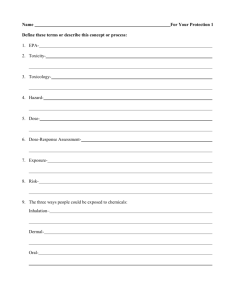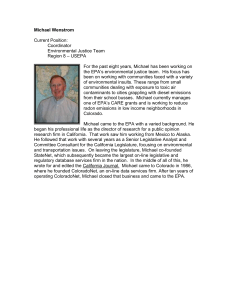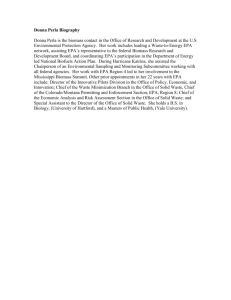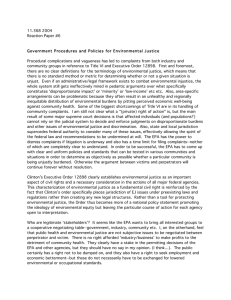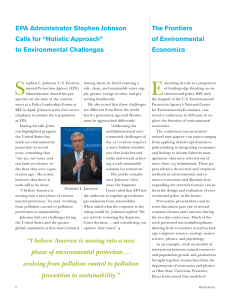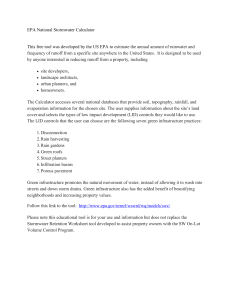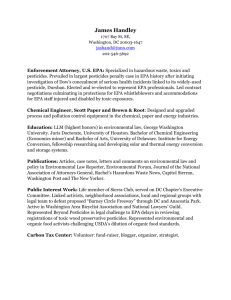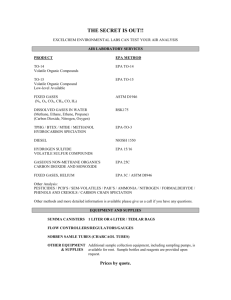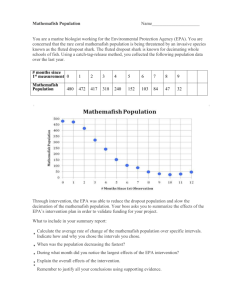2.2 United States Environmental Policy Powerpoint
advertisement
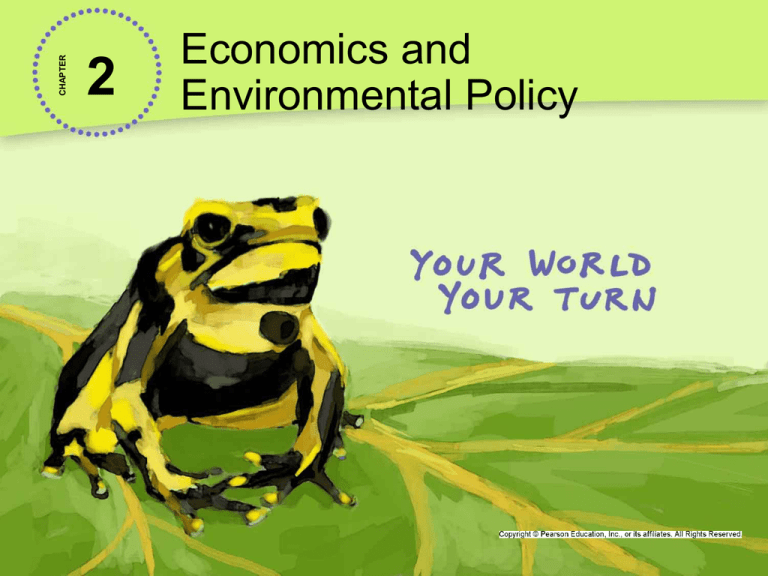
CHAPTER 2 Economics and Environmental Policy Lesson 2.2 United States Environmental Policy The Homestead Act of 1862 allowed any citizen, for just $16, to claim 65 hectares (160 acres) of public land, as long as they lived on it for five years and either built a house or cultivated the land. Lesson 2.2 United States Environmental Policy What Is Environmental Policy? • A set of plans & principles for interactions between humans & environment • Environmental policy needs input from science, ethics, and economics. • In the U.S., all three branches of government are involved Federal Policy • Legislative • Executive • Judicial Lesson 2.2 United States Environmental Policy State and Local Environmental Policy • State & local policies cannot violate the Constitution. • The strength of policy differs from state to state. • States that experience environmental disasters tend to have stronger environmental laws. Lesson 2.2 United States Environmental Policy History of U.S. Environmental Policy: The First Period (1780s to late-1800s) • Laws during this period dealt primarily with management of public lands. • General feeling was that resources & land were an endless supply. Long Lake in the Rocky Mountains, near Ward, CO Lesson 2.2 United States Environmental Policy The Second Period (late 1800s to mid-1900s) • Policies placed to reduce environmental problems with westward expansion. • Led to the formation of national forest system & national park system Lesson 2.2 United States Environmental Policy The Third Period (mid- to late-1900s) • Dense populations led to increasing resource consumption & pollution. • Silent Spring & fires on the Cuyahoga River, Cleveland raised environmental awareness. • People saw connection between human and environmental health. Did You Know? Rachel Carson’s Silent Spring, published in 1962, awakened the public to the dangers of industrial chemicals and DDT. Lesson 2.2 United States Environmental Policy Modern U.S. Environmental Policy • National Environmental Policy Act: Requires government agencies & contractors to evaluate the environmental impact of a project • led to the formation of the EPA • Environmental Protection Agency (EPA): Responsible for monitoring, enforcing, & researching environmental quality


